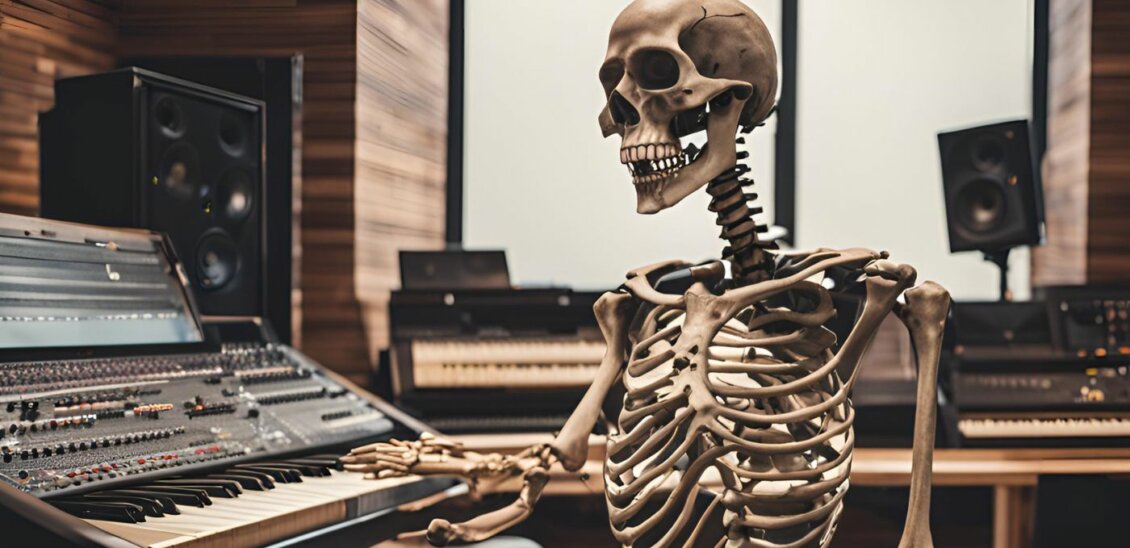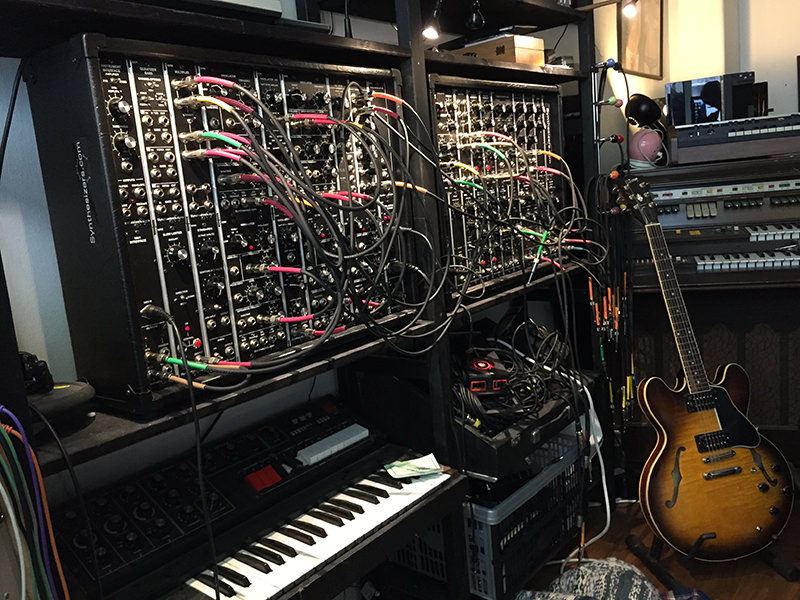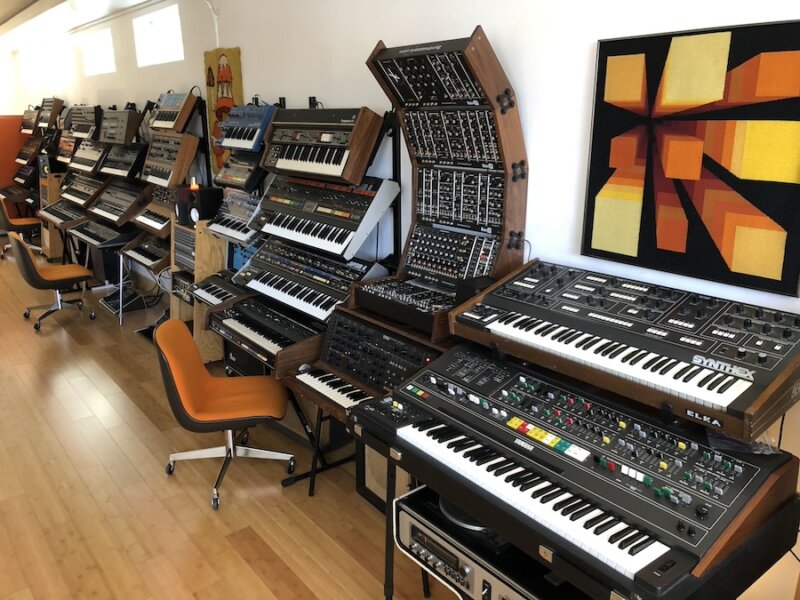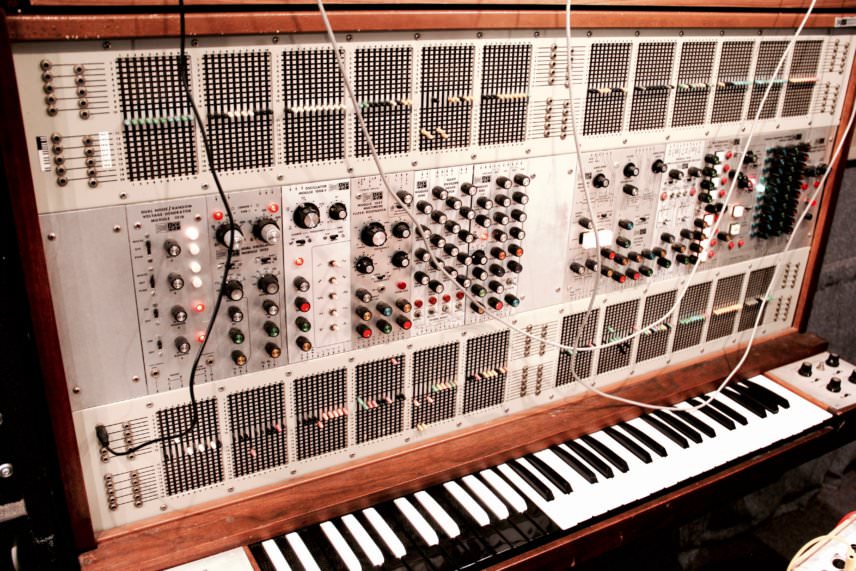CD, CD Çalar, DVD, DVD Çalar, SACD, LP, Plak Çeşitleri ve Fiyatları

Have vintage gear? You may want to get your things in order and make an estate plan or your studio could end up in the bin…
It’s not the kind of thing you usually think about, but you will die. Eventually, we all do. Hopefully, that happens naturally after a long and fulfilling life. However, if it should happen sooner than later, do you have all of your end-of-life preparations in order?
If you’re like most people, you don’t. It’s not something that young people tend to think about. And that includes music producers. But if you have anything even remotely valuable in your studio – vintage synthesizers or drum machines, costly gear, a fully loaded computer – you may want to consider what will happen to it if you should suddenly pass away.
Because if you don’t make up an estate plan, it’s probably going into the trash.
What is an Estate Plan?
To make sure that your musical equipment ends up where you want it to, you’ll need to make a will. This is known as an estate plan. Laws around estate plans differ from country to country (and in the US, often from state to state) but the following should give you a general idea about them.

“An estate plan ensures that your wishes are respected and your legacy is preserved,” said Patricia De Fonte, JD, L.LM, Founder of De Fonte Law. De Fonte Law is a boutique estate planning firm in California that works with artists, musicians and writers.
“An estate plan is a set of legal documents and instructions that outlines how you want your assets,” she continued, “including musical instruments and gear and other possessions, to be managed and distributed after you pass away. It also includes details about who will take care of your responsibilities if you suddenly cannot.”
How to Make an Estate Plan
You need to create an estate plan to leave your studio gear to someone. In it, you have to say who you want to receive your property clearly. This can include anything and everything you own, from your synths and samplers to the cords that connect them.
You’ll also need to make a list of all the things that you want to bequeath.
Next, you should choose an executor. This is the person that you will entrust to make sure your wishes are carried out. “It might be that you name a close family member to oversee your estate,” said Patricia, “but (you could choose) another musician or industry professional to oversee … the distribution, sale or donation of your equipment and gear.”
Finally, you should store your estate plan somewhere safe and let someone, likely the executor, know where it is.
When Should You Make an Estate Plan?
We tend not to think about dying when we’re busy living, but perhaps we should. If you suffered an unfortunate accident tonight, would you be comfortable with what happened to your studio? If it’s just a 2017 PC, Scarlett Solo and a pair of Rokit 5s you might not be too concerned. However, if you’ve just spent the last three years building up a professional studio with high-class gear and enviable vintage instruments, you may want to start thinking about end of life preparations.
“It’s never too early to start thinking about making an estate plan,” urged Patricia. “Even young people should consider it, especially if they have valuable items like music gear.”
[quote align=right text=”If you’ve just spent the last three years building up a professional studio with high-class gear and enviable vintage instruments, you may want to start thinking about end of life preparations”]
Is a Homemade Will Legally Binding?
Say that you decide it’s worth it to make an estate plan. Surely you can just write up a list of your things and who gets them, and that’s good enough? Unfortunately, no. You can’t just dash out, “I (your name) being of sound mind and body…” There are rules to follow.

“A homemade estate plan can be legally binding,” clarified Patricia, “but it must meet strict legal requirements. This usually includes being written clearly, signed by you, and witnessed correctly. However, it is safer to get professional help to avoid any mistakes that could make your estate plan invalid.”
What Happens to Your Studio if You Don’t Make an Estate Plan?
Should you pass without having made an estate plan, the law will decide who gets your possessions. This is called being intestate and it varies depending on where you live. However, it usually means that your immediate family inherits your belongings.
“This might not align with your wishes,” said Patricia, “so it’s better to make an estate plan to have control over who gets what.”
In the worst case scenario, as when immediate family can’t be located, your items will be disposed of quickly – and that can mean throwing everything away.
Who Should You Give Your Gear To?
Who to gift your gear to in your estate plan is entirely up to you. It could be your musical partner or bandmates, or it could be friends or fellow musicians.
You may want to consider donating some or all of your gear to a local school or charity. Some charities, like Save The Children, have policies in place to help you bequeath items to them in your will.
[quote align=right text=”In the worst case scenario, as when immediate family can’t be located, your items will be disposed of quickly – and that can mean throwing everything away”]
The Vintage Synthesizer Museum
If you have particularly rare pieces of gear in your collection, one such recipient could be the Vintage Synthesizer Museum in Los Angeles. VSM is an interactive museum and electronic music recording studio. You would be sure of your gear being used and cared for.

“If someone was looking to leave their studio to VSM, we would certainly prefer to have a discussion about what that would look like,” said Lance Hill, the curator at the Vintage Synthesizer Museum. “That being said, a discussion in advance isn’t always an option and we would certainly be open to taking in whatever gear was being offered.”
Lance encourages anyone thinking of leaving their gear to VSM to discuss it with their immediate family before doing so. Interested parties can email Lance to discuss the details.
The Alan R. Pearlman Foundation
Another possibility is the Alan R. Pearlman Foundation, a not-for-profit organization dedicated to making the inventions of the late founder of ARP accessible to the public. We spoke with Dina Pearlman-Ifil, Executive Director, about gifting any ARP gear to the foundation.

Attack: Are you open to people leaving you their vintage gear when they pass?
Dina Pearlman-Ifil: Yes, we are. We believe the instruments belong in the hands of artists to make new soundscapes and this should not be cost prohibitive to the musician. One of our main projects, ARPs for All, enables these often rare synthesizers to be played by musicians of all levels and means.
If so, how should people arrange this?
People can reach out to me at any time via email. We can discuss what works best for you. In many cases, a donation of an instrument is considered tax deductible. We can arrange for shipping or pick-up if necessary. If it’s been in storage for a long period of time, we suggest that the instrument not be turned on without consultation, and either inspected by a professional vintage synthesizer restoration expert or sent to us to give the instrument new life.
Do you prefer that they speak with you ahead of time?
I am always happy to chat with someone about this. I know firsthand that dealing with estate planning is emotional and one thing we can assure is that the instruments will live on. We are happy to create a plaque to memorialize the original owner, and/or include a story on our website about the history of the synthesizer.
In part two of this series, we’ll look at what happens to your music – your copyrights, your publishing rights, and even your voice and likeness – when you die.
[social-links heading=”Follow Attack Magazine” facebook=”https://www.facebook.com/attackmag” twitter=”https://twitter.com/attackmag1″ instagram=”https://www.instagram.com/attackmag/” youtube=”https://www.youtube.com/user/attackmag” soundcloud=”https://soundcloud.com/attackmag” tiktok=”https://www.tiktok.com/@attackmagazine”]
[product-collection]
attackmagazine

Have vintage gear? You may want to get your things in order and make an estate plan or your studio could end up in the bin…
It’s not the kind of thing you usually think about, but you will die. Eventually, we all do. Hopefully, that happens naturally after a long and fulfilling life. However, if it should happen sooner than later, do you have all of your end-of-life preparations in order?
If you’re like most people, you don’t. It’s not something that young people tend to think about. And that includes music producers. But if you have anything even remotely valuable in your studio – vintage synthesizers or drum machines, costly gear, a fully loaded computer – you may want to consider what will happen to it if you should suddenly pass away.
Because if you don’t make up an estate plan, it’s probably going into the trash.
What is an Estate Plan?
To make sure that your musical equipment ends up where you want it to, you’ll need to make a will. This is known as an estate plan. Laws around estate plans differ from country to country (and in the US, often from state to state) but the following should give you a general idea about them.

“An estate plan ensures that your wishes are respected and your legacy is preserved,” said Patricia De Fonte, JD, L.LM, Founder of De Fonte Law. De Fonte Law is a boutique estate planning firm in California that works with artists, musicians and writers.
“An estate plan is a set of legal documents and instructions that outlines how you want your assets,” she continued, “including musical instruments and gear and other possessions, to be managed and distributed after you pass away. It also includes details about who will take care of your responsibilities if you suddenly cannot.”
How to Make an Estate Plan
You need to create an estate plan to leave your studio gear to someone. In it, you have to say who you want to receive your property clearly. This can include anything and everything you own, from your synths and samplers to the cords that connect them.
You’ll also need to make a list of all the things that you want to bequeath.
Next, you should choose an executor. This is the person that you will entrust to make sure your wishes are carried out. “It might be that you name a close family member to oversee your estate,” said Patricia, “but (you could choose) another musician or industry professional to oversee … the distribution, sale or donation of your equipment and gear.”
Finally, you should store your estate plan somewhere safe and let someone, likely the executor, know where it is.
When Should You Make an Estate Plan?
We tend not to think about dying when we’re busy living, but perhaps we should. If you suffered an unfortunate accident tonight, would you be comfortable with what happened to your studio? If it’s just a 2017 PC, Scarlett Solo and a pair of Rokit 5s you might not be too concerned. However, if you’ve just spent the last three years building up a professional studio with high-class gear and enviable vintage instruments, you may want to start thinking about end of life preparations.
“It’s never too early to start thinking about making an estate plan,” urged Patricia. “Even young people should consider it, especially if they have valuable items like music gear.”
[quote align=right text=”If you’ve just spent the last three years building up a professional studio with high-class gear and enviable vintage instruments, you may want to start thinking about end of life preparations”]
Is a Homemade Will Legally Binding?
Say that you decide it’s worth it to make an estate plan. Surely you can just write up a list of your things and who gets them, and that’s good enough? Unfortunately, no. You can’t just dash out, “I (your name) being of sound mind and body…” There are rules to follow.

“A homemade estate plan can be legally binding,” clarified Patricia, “but it must meet strict legal requirements. This usually includes being written clearly, signed by you, and witnessed correctly. However, it is safer to get professional help to avoid any mistakes that could make your estate plan invalid.”
What Happens to Your Studio if You Don’t Make an Estate Plan?
Should you pass without having made an estate plan, the law will decide who gets your possessions. This is called being intestate and it varies depending on where you live. However, it usually means that your immediate family inherits your belongings.
“This might not align with your wishes,” said Patricia, “so it’s better to make an estate plan to have control over who gets what.”
In the worst case scenario, as when immediate family can’t be located, your items will be disposed of quickly – and that can mean throwing everything away.
Who Should You Give Your Gear To?
Who to gift your gear to in your estate plan is entirely up to you. It could be your musical partner or bandmates, or it could be friends or fellow musicians.
You may want to consider donating some or all of your gear to a local school or charity. Some charities, like Save The Children, have policies in place to help you bequeath items to them in your will.
[quote align=right text=”In the worst case scenario, as when immediate family can’t be located, your items will be disposed of quickly – and that can mean throwing everything away”]
The Vintage Synthesizer Museum
If you have particularly rare pieces of gear in your collection, one such recipient could be the Vintage Synthesizer Museum in Los Angeles. VSM is an interactive museum and electronic music recording studio. You would be sure of your gear being used and cared for.

“If someone was looking to leave their studio to VSM, we would certainly prefer to have a discussion about what that would look like,” said Lance Hill, the curator at the Vintage Synthesizer Museum. “That being said, a discussion in advance isn’t always an option and we would certainly be open to taking in whatever gear was being offered.”
Lance encourages anyone thinking of leaving their gear to VSM to discuss it with their immediate family before doing so. Interested parties can email Lance to discuss the details.
The Alan R. Pearlman Foundation
Another possibility is the Alan R. Pearlman Foundation, a not-for-profit organization dedicated to making the inventions of the late founder of ARP accessible to the public. We spoke with Dina Pearlman-Ifil, Executive Director, about gifting any ARP gear to the foundation.

Attack: Are you open to people leaving you their vintage gear when they pass?
Dina Pearlman-Ifil: Yes, we are. We believe the instruments belong in the hands of artists to make new soundscapes and this should not be cost prohibitive to the musician. One of our main projects, ARPs for All, enables these often rare synthesizers to be played by musicians of all levels and means.
If so, how should people arrange this?
People can reach out to me at any time via email. We can discuss what works best for you. In many cases, a donation of an instrument is considered tax deductible. We can arrange for shipping or pick-up if necessary. If it’s been in storage for a long period of time, we suggest that the instrument not be turned on without consultation, and either inspected by a professional vintage synthesizer restoration expert or sent to us to give the instrument new life.
Do you prefer that they speak with you ahead of time?
I am always happy to chat with someone about this. I know firsthand that dealing with estate planning is emotional and one thing we can assure is that the instruments will live on. We are happy to create a plaque to memorialize the original owner, and/or include a story on our website about the history of the synthesizer.
In part two of this series, we’ll look at what happens to your music – your copyrights, your publishing rights, and even your voice and likeness – when you die.
[social-links heading=”Follow Attack Magazine” facebook=”https://www.facebook.com/attackmag” twitter=”https://twitter.com/attackmag1″ instagram=”https://www.instagram.com/attackmag/” youtube=”https://www.youtube.com/user/attackmag” soundcloud=”https://soundcloud.com/attackmag” tiktok=”https://www.tiktok.com/@attackmagazine”]
[product-collection]